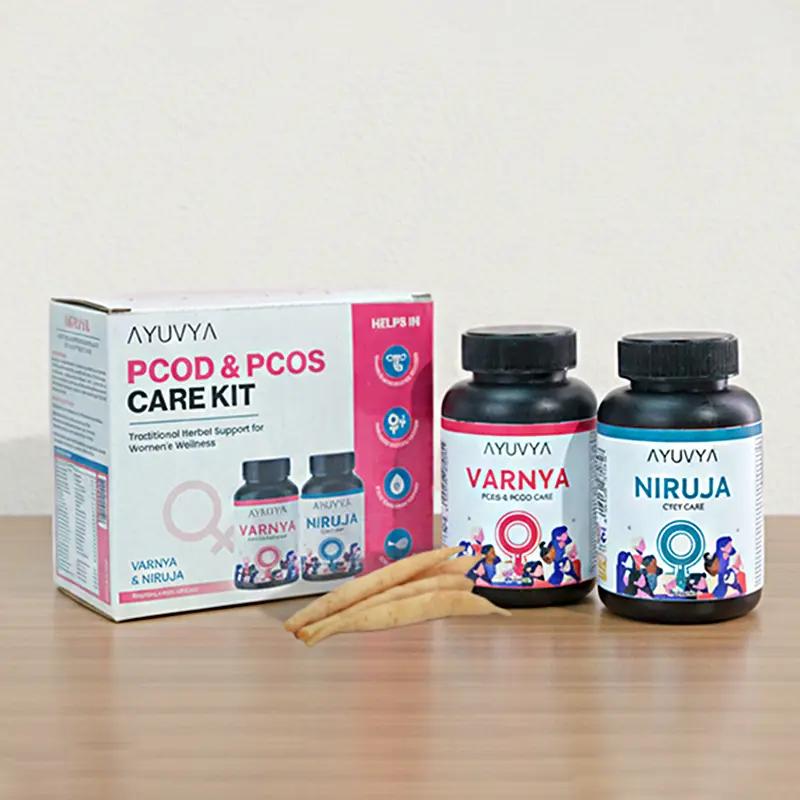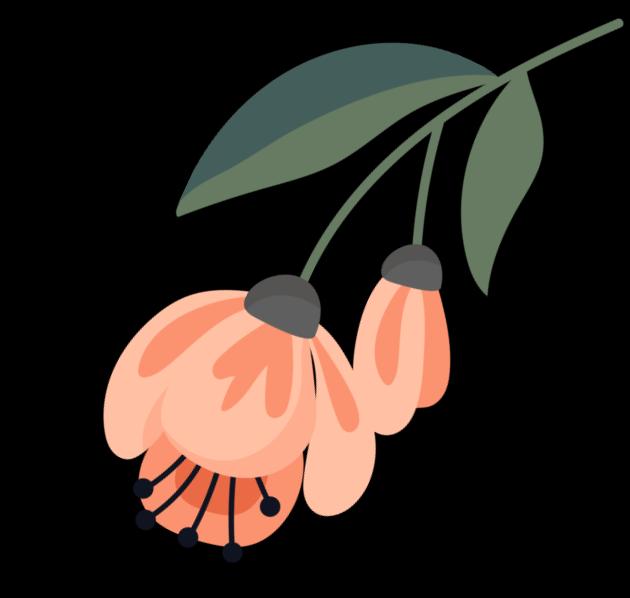8 Effective Ayurvedic Herbs That Can Help With Menopause
Apr 26, 2024

Menopause is a natural phase in a woman's life that brings changes to the body and mind. It is a time when many seek gentle yet effective ways to ease their symptoms and find balance. Ayurveda offers gentle and effective treatments for menopausal symptoms like hot flashes, sleep issues, and mood swings. It focuses on balancing the body, mind, and spirit through holistic approaches, viewing menopause as a phase to be balanced rather than a disease. Ayurvedic treatments aim to ease symptoms and help women adapt to these changes.
Table of Contents:
- What is Menopause?
- Role of Ayurveda in Menopause
- 4 Most Common Symptoms of Menopause?
- Lifestyle Changes for Menopause
- 8 Ayurvedic Herbs to Manage Menopause
- Conclusion
- FAQs
What is Menopause?
Menopause is a natural stage in a woman's life when she stops having periods and can no longer get pregnant. It usually happens in her late 40s or early 50s. During menopause, the ovaries stop releasing eggs and produce less estrogen and progesterone, leading to various physical and emotional changes.
However, it is important to know that age is a natural reason for menopause. There are many reasons that can also contribute to the cause of menopause.
Role of Ayurveda in Menopause
Ayurveda suggests that using Ayurvedic medicine for menopausal problems, nature and your body constitution, which is called ‘dosha' in Ayurvedic terms, should be in line with each other.
In Ayurveda, it is common for the practitioner to advise about how the patient’s lifestyle should be changed; this mostly includes diet, sleep and physical exercise modifications that are meant to help create inner balance.
Herbs used for ayurvedic medicine are plentiful, and they become an important part of menopause ayurvedic medicine. These herbs are carefully chosen and have the ability to balance hormones, comfort the nervous system and give all-important support to the body.
4 Most Common Symptoms of Menopause?
1. Hot Flashes and Night Sweats: These are the key menopause symptoms when a woman is affected by frequent and severe flashes accompanied by sweats and discomfort.
2. Emotional Changes: Menopause can be like an ups and downs of emotions, which often lead to mood swings, anxiety, and even depression.
3. Sleep Disturbances: It is common to experience night sweats and mood swings more often, which, in turn, may result in insomnia or broken sleep patterns.
4. Heavy Bleeding: Women in this stage may experience excessive menstrual bleeding, which for some is a very tough period in life.
Lifestyle Changes for Menopause
In some cases, lifestyle changes that can be used to either manage the symptoms of menopause or delay their occurrence.
1. Diet
In Ayurveda, diet is one of the key elements for balancing the hormones of each dosha (body type) individually. Consuming unrefined grains, fresh fruits, and veggies, in addition to abstaining from highly processed foods, excess caffeine, and sugar, can help slow down menopausal symptoms.
2. Herbal Remedies
For women with heavy menstruation, ayurvedic medicine for menopause and menstrual disorders uses strong herbs like Ashoka, Lodhra, and Shatavari.
3. Physical Activity
Mild to moderate types of yoga that are practiced regularly are also very beneficial. The bridge or supported savasana pose, for example, does wonders for calming the nervous system and balancing hormone levels.
4. Stress Management
Several tactics, such as meditation, Pranayama (breath control), or other mindfulness exercises, are prescribed to keep stress in check.
5. Routine
Ayurveda highly values Dinacharya for its capability to maintain a person's normal rhythm in the body.
6. Detoxification
Regular detoxification can aid you in removing toxins from your body, and can prolong the time needed to develop menopause symptoms.
8 Ayurvedic Herbs to Manage Menopause
1. Ashwagandha
At menopausal age, ashwagandha can provide the support that the body needs to function normally and, in particular, to reduce nervousness, lower anxiety, and improve sleep patterns. Due to its ability to increase energy levels and rejuvenation, it becomes an effective partner in overcoming fatigue caused by menopause.
2. Shatavari
Shatavari is effective in the reproductive system and also in regulating hormone levels, which are important during menopause. It can mitigate severe symptoms such as hot flashes, night sweats and vaginal dryness.
3. Guduchi
Guduchi provides an excellent boost to the immune system and boosts the body in general. Liver function can be supported as well as vitality detoxification during menopause due to Guduchi, which is one of the most important herbs needed to maintain good health.
4. Brahmi
Brahmi, a sovereign herb for the brain, is much respected. Menopausal women whose brain fog, memory retrieval or concentration can be enhanced by Brahmi may find it of great help.
5. Licorice
Due to its phytoestrogenic nature, licorice can imitate the activity of the natural estrogen hormone. This can be especially effective in leveling hormones and eliminating the symptoms of menopause, like hot flashes, mood swings, and irritability. It also helps to maintain the balance of adrenal health, which is important during hormonal fluctuations.
6. Turmeric
Curcumin, the active component in turmeric, has a good track record of fighting inflammation. It can effectively relieve joint pain, stiffness, and inflammation, which are all typical of menopause during this stage.
7. Sariva (Indian Sarsaparilla)
The Sariva herb is cooling in nature and is, therefore, helpful in dealing with hot flashes and night sweats. It is a natural ingredient that purifies the blood and improves the complexion, resulting in clear, radiant skin.
Final Words
In summary, following an Ayurvedic way of life can be useful to women during the menopausal transition and can provide natural and gentle ways to alleviate menopausal issues. Ayurvedic medicine helps balance your body and keep you healthy during menopause, thus empowering and managing this huge transition in a woman's life.
Frequently Asked Questions
Menopause is regarded as kicking off between the ages of 45 and 55, although the median menopause age is approximately 51. Nevertheless, for each person, it can manifest itself at some other time between the ages.
In fact, a rise in estrogen (the female hormone) can be achieved through the intake of phytoestrogen-rich foods such as soy, flaxseeds, and sesame seeds. Developing a regular exercise routine and maintaining a healthy weight are two other factors that impact hormonal balance.
Menopause is clinically defined as a period of 12 consecutive months of amenorrhea in women, after which she is considered postmenopausal. Blood tests that show hormone levels can also be considered a biomarker for the advent of menopause.
The menopause symptoms that are most commonly reported as debilitating are hot flashes, night sweats, and hormone changes causing irregular periods. Other major issues consist of mood swings, weight increase and hair loss.
Ayurveda doesn't claim to cure premature menopause but proposes therapies to alleviate the symptoms and improve quality of life. A diverse selection of food, herbal remedies, and specific lifestyle adjustments for each person are among the important aspects of this approach.
The best natural tablet for menopause should be chosen under the guidance of the healthcare provider. On many occasions, black cohosh, red clover, or soy isoflavone, which were researched for their ability to ease menopausal symptoms, are the ingredients.
The perimenopause stage is when symptoms start and your periods begin to become irregular; menopause itself is characterized by a lack of menstruation for 12 months; and postmenopause is the stage that occurs after you have reached menopause.
Although you cannot reverse menopause, you can control the symptoms and stay healthy by using some natural methods, such as having a balanced diet, doing sports regularly, and using stress management methods.
Optimal therapy for menopause corrects hormonal imbalances and helps alleviate symptoms. Here, the focus may be on lifestyle modifications like a healthy diet and regular exercise, as well as medication that suits each individual, such as HRT.
The effective ayurvedic medicine for menopause problems usually has Shatavari, Ashwagandha and Guduchi. These herbs, known as adrenal tonics or adaptogens, are highly prized for their ability to restore hormonal balance, reduce stress, and enhance the immune system to manage diverse symptoms of menopause.














